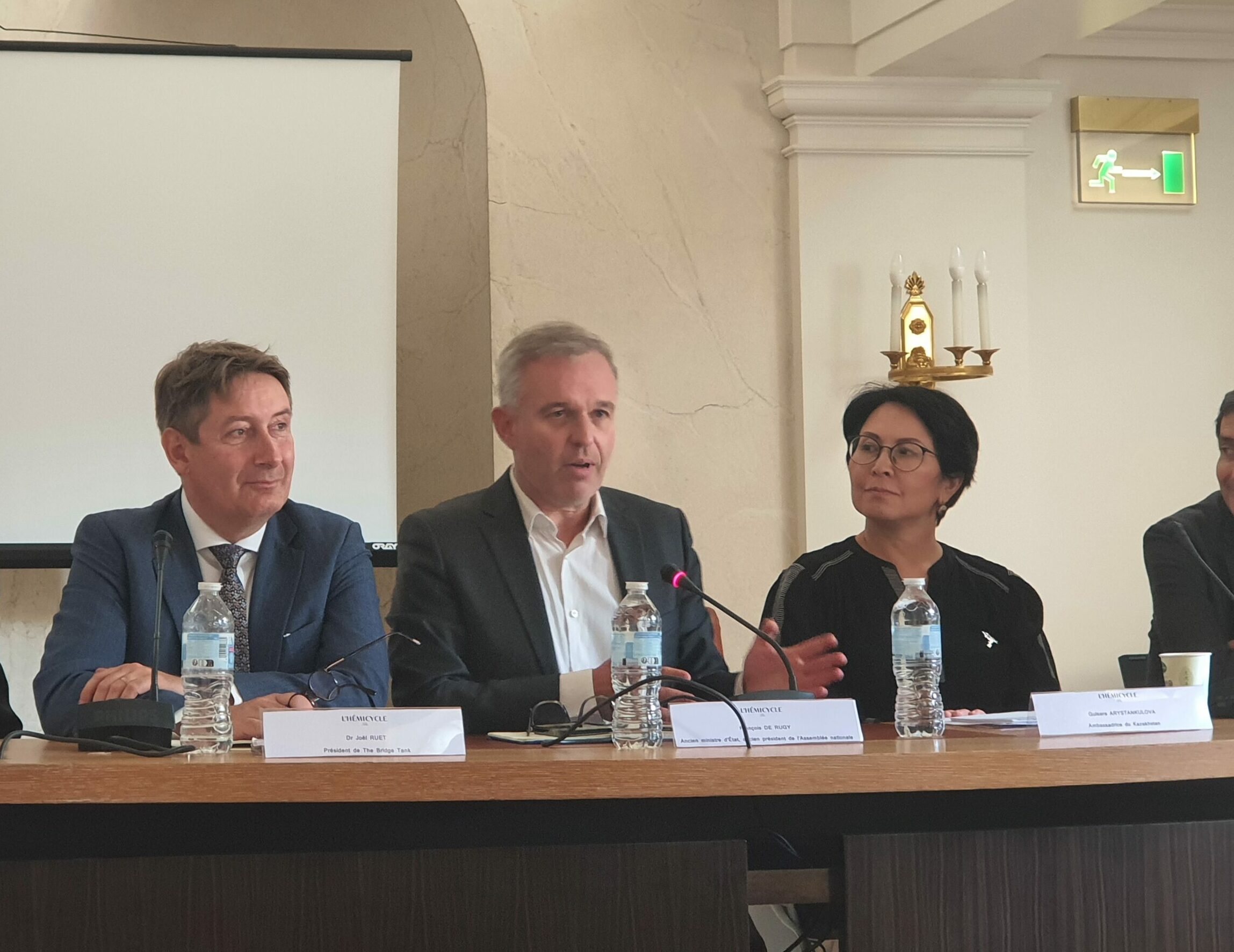On 30 June 2023, Joël Ruet sat down with former Minister of State, Minister for the Ecological Transition and Solidarity, and former President of the French National Assembly, François de Rugy, and the current Ambassador of Kazakhstan to France, Gulsara Arystankulova, to discuss bilateral relations between France and Kazakhstan and the prospects for energy and technology partnerships between the two countries.
This discussion was part of a symposium held at the French Senate on the theme of “Energy sovereignty for Europe and France: what solutions, what partners?” The Bridge Tank’s recent work in Kazakhstan is best exemplified by our contribution to the development of an auction mechanism for renewable energy in 2021 and the highlighting of the challenges faced by foreign investors in the country.
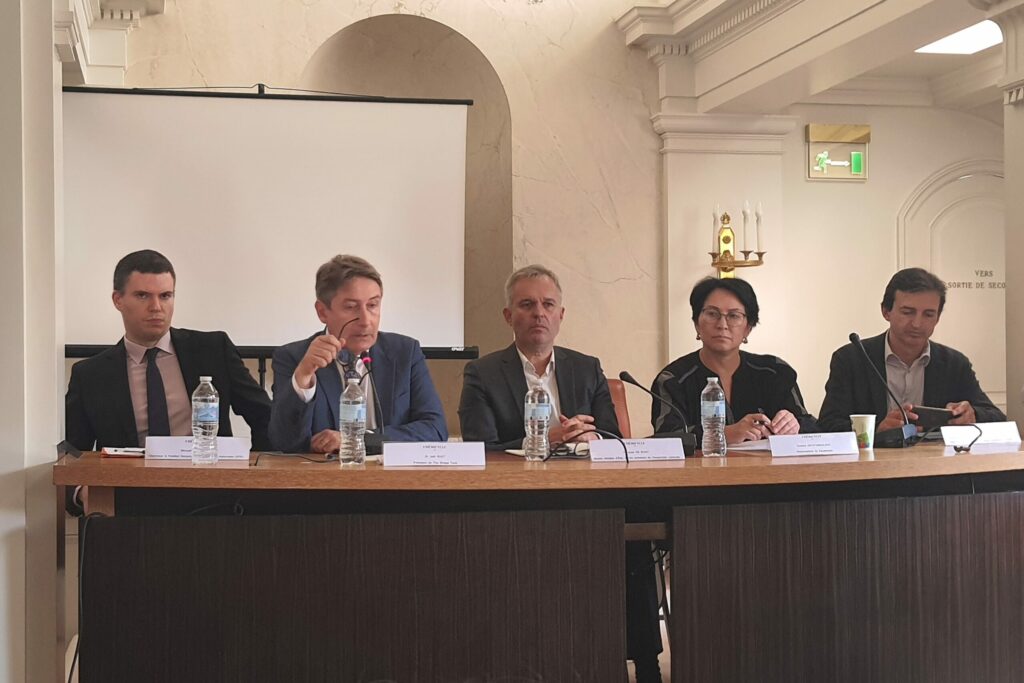
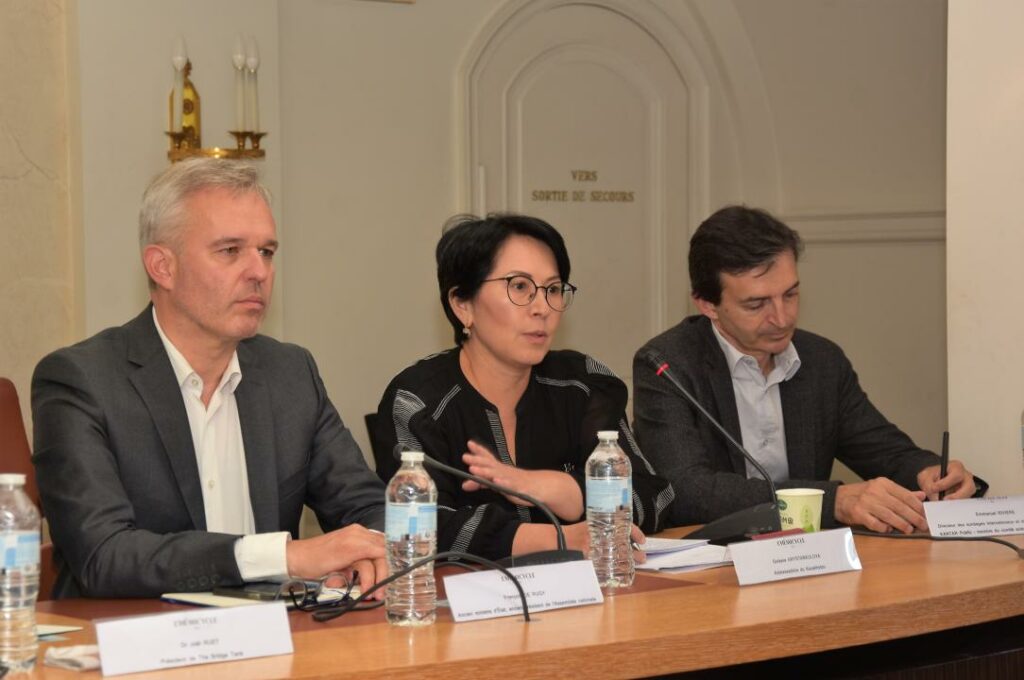
Future ambitions and cooperation
During her address, Ambassador Gulsara Arystankulova emphasised the profound relationship that links France and Kazakhstan, and the close cooperation between the two countries in the energy sector. In November 2022, the President of Kazakhstan, Kassym-Jomart Tokaïev, was notably welcomed to Paris by President Macron. This cooperation has been particularly strengthened since the start of Russia’s invasion of Ukraine, with Kazakhstan offering a key alternative to Russian oil and gas. With its wealth of raw materials and as the oil giant of Central Asia, the country plays a key role in Europe’s energy supply and will be a central player in the continent’s energy future.
For despite its status as an oil giant, Kazakhstan is pursuing an ambitious energy transition strategy aimed at gasifying its energy mix and achieving 50% renewable energy by 2050. To meet the supply and interconnection challenges posed by the country’s size, Kazakhstan is betting on a process of energy decentralisation based on state-subsidised green energy mini-systems.
Kazakhstan’s ambition to be carbon neutral by 2060 is underpinned by considerable assets. With its vast open spaces, abundant sunshine and rare earth resources, the country offers great potential for the development of renewable energies. French groups are already positioning themselves in the country, such as TotalEnergies, which has launched a 1GW onshore wind farm project in the Zhambyl region of southern Kazakhstan, in partnership with the National Wealth Fund Samruk-Kazyna and the National Company KazMunayGas.
Partnerships and issues of sovereignty
According to Joël Ruet, there are many opportunities for not only energy cooperation but technical and technological cooperation between France and Kazakhstan. The world’s leading producer of uranium, Kazakhstan supplies the uranium needed to run France’s nuclear power plants, notably through a close partnership with French nuclear giant Orano.
As the third largest foreign investor in Kazakhstan, France has every interest in positioning itself to generate new partnerships and launch new industries in the country, as well as continuing to develop its know-how and human resources, particularly in the nuclear and hydrogen sectors. Cooperation between France and Kazakhstan cannot therefore be limited to its energy component and to the supply of raw materials. This cooperation must bolster its technical and technological component in order to develop joint research, knowledge and innovation in the sector.
In the context of these partnerships, it is important to consider energy in its various forms, not only through the issue of electrification but also by taking into account energy in its liquid and gaseous forms, which represent a significant proportion of the energy mix.
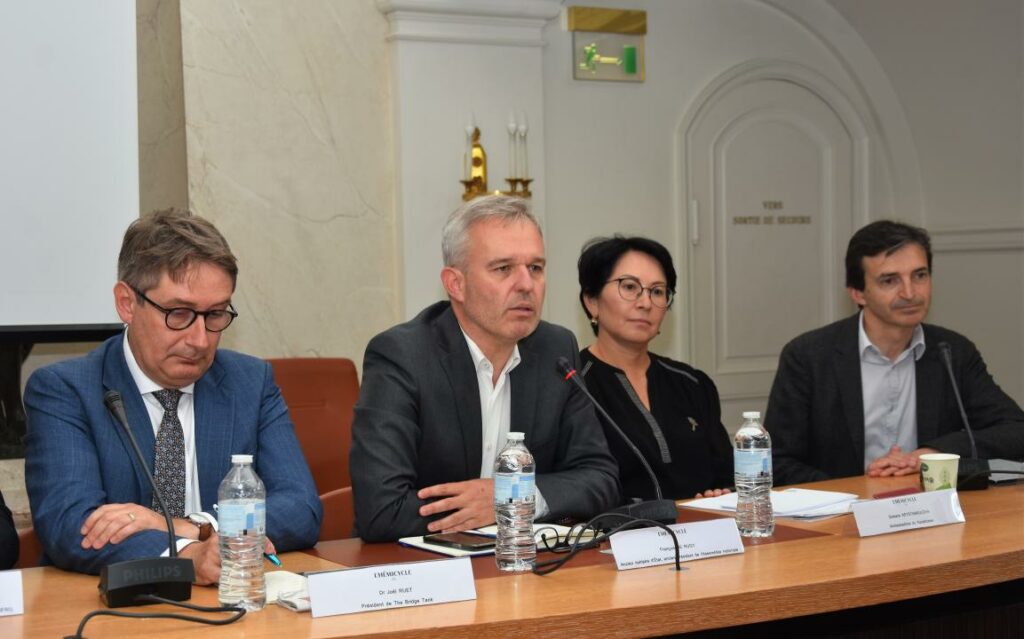
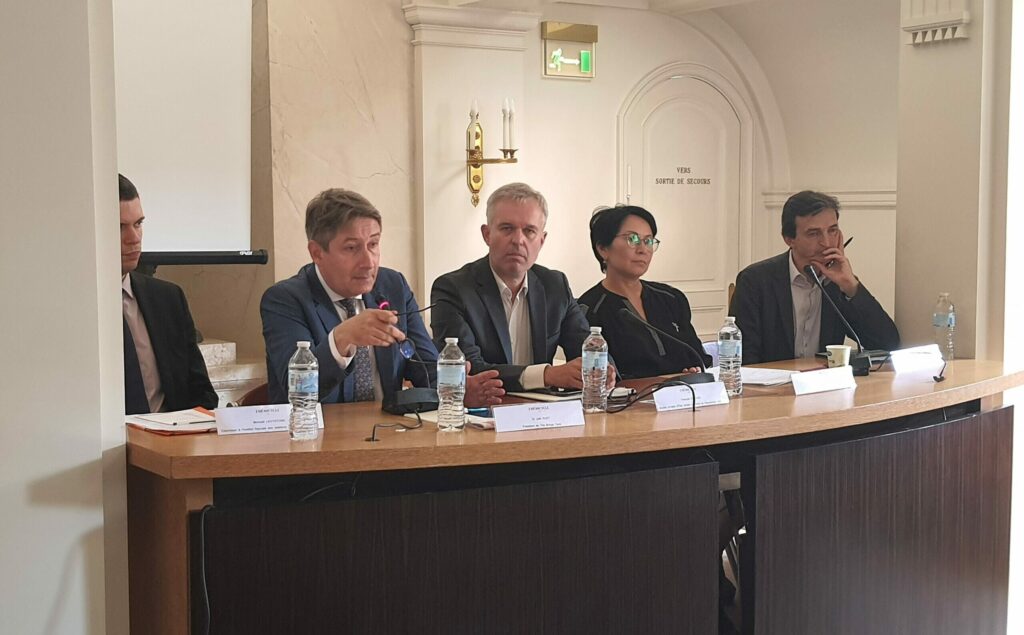
Placing this observation in the context of French energy sovereignty, François de Rugy emphasised that energy sovereignty is not just a question of electricity, but of oil and gas – resources that, in France’s case, are almost entirely imported. To ensure security of supply, France will therefore need to diversify sources of supply, but also electrify uses by decarbonising transport, heating and industry.
In recent years, however, France has been faced with a new challenge resulting from the declining availability of nuclear power plants due to maintenance and declining production capacity. According to François de Rugy, it is therefore crucial to invest in both renewable energies and the renewal of France’s nuclear power plants, using France’s strengths and expertise in these areas.
The evolution of Kazakhstan’s energy sector undoubtedly offers great potential for cooperation with France and Europe. Although the country currently supplies fossil fuels and raw materials to the Old Continent, it will be an essential partner in the energy transition and in the development of renewable and low-carbon energy sources.

